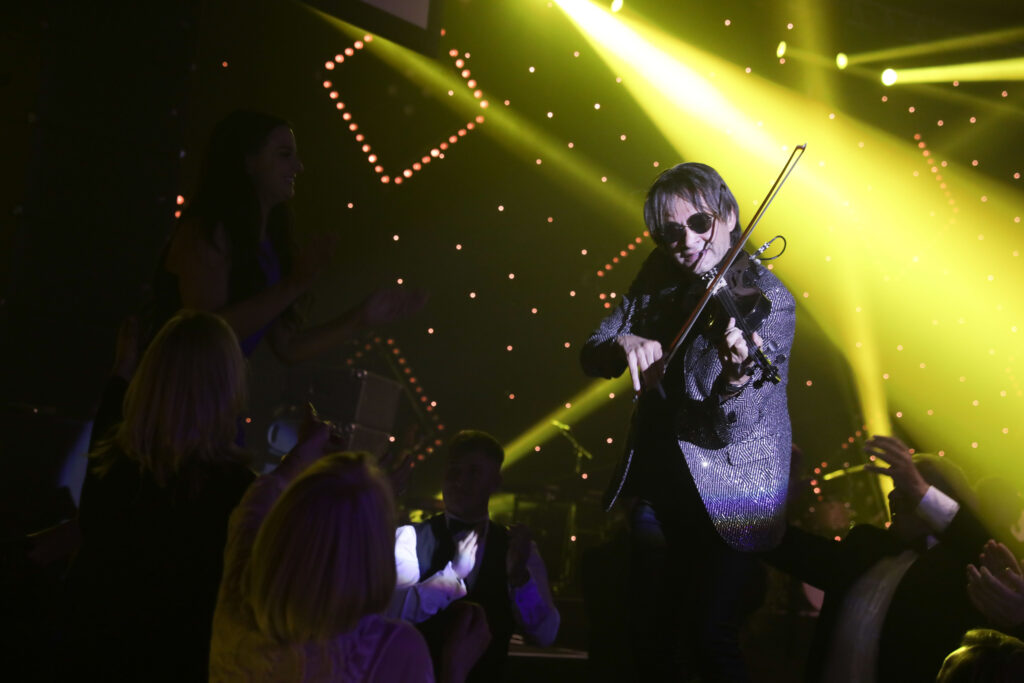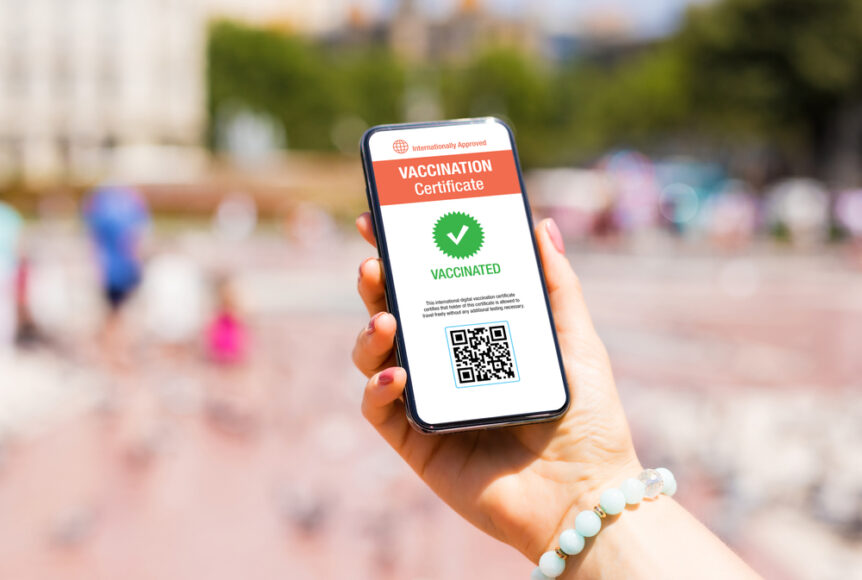Of the many ways to navigate our way out of the coronavirus pandemic, the vaccine or immunity passport has to be one of the most controversial. Some have branded the idea ‘discriminatory’; others believe it to be ‘inevitable’ and the only safe for the world to open-up again. Either way, it begs the tantalising question – are vaccine passports the way back to staging live events?
In the UK, targets are for every adult to be vaccinated by Autumn and proof of vaccination could be a safe way for people to begin to travel and come together at events again. Yet as petitions against vaccine passports gain momentum, the morality of such a scheme, that segregates those who exercise their right not to be vaccinated or who are simply further down the vaccination priority list, has come under scrutiny.

DILEMMAS
Be in no doubt. The event sector has been decimated by Covid-19 and event planners are fighting for survival. Me included. So, I can understand why the idea of staging an event where everyone can prove that they have been vaccinated, could offer reassurance to a planner and client. One measure towards a safer live event. But the moral dilemma vs the practicalities of getting life back on tracks, is big. We all want the economy moving and the industry open, but at what cost? The longer the pandemic continues, will more people look at this option? I suspect that in spite of the issues and questions, they may. For me, in deciding if vaccine passports the way back to staging live events there are currently more questions than answers. For example:
Just how easy would it be to fake an immunity passport?
Will we see corporate companies asking staff for a vaccine passport before they can attend business events?
Is it possible that brides and grooms adopt this approach when selecting wedding guests?
Would theatres and music venues ask for the vaccine passport when you book tickets?
Can this be legally enforced?
Will we alienate rather than unite people?????
A ROUTE TO RE-OPENING
Ordinarily, I would throw my full weight behind anything that would allow the events industry to open up again and let us get back to doing what we love. And as the pandemic continues, with new strains emerging, I can see that some companies and private clients may look to a vaccine passport for reassurance of safety. And some planners, as a route to reopen their decimated businesses. However, I do have both moral and logistical doubts over the idea of immunity passports.
LOGISTICAL HEADACHES
In terms of large-scale events, it would put pressure on the security and event management team to identify anyone who doesn’t have an immunity passport. And if we do, what do we do with them? If entry is to be refused for those who don’t have immunity, communication would have to be very clear about the fact that a passport is a prerequisite to entering the event.
RISKY BUSINESS
Plus, there’s the issue of what would happen if somebody did slip through the net. What would happen if somebody were to contract Covid-19 at an event and where would the blame lie? Would there be a legal implication? We would have to be extremely hot on collecting and storing personal data record for years to come.
DANGEROUS DIFFERENCES
In asking “are vaccine passports the way back to staging live events?” we have to consider the differing rates of vaccinations amongst age groups, which poses a problem. For example, if we were organising a work recognition event, ahead of the time that all UK adults have been vaccinated, would there be different rules for different age groups? Some able to mix, others segregated. Social distancing and other virus control rules would surely still have to apply across the entire event. And many of our events include delegates from all levels of the company – would this continue? I am sure some businesses will consider smaller, ‘less risky’ events for management. But this defeats the morale and team building elements of these events surely?

INTERNATIONAL INFLUENCE
There would also be an implication for the staff we are able to hire. In our industry we rely heavily on freelance workers, many of those travelling from abroad. Undoubtedly, those who have been vaccinated will be a more employable prospect than those who have not.
For an international event, with vaccination programmes happening at differing rates, there will also be a knock-on effect. Many of the companies I work with have offices across the Globe. Do they split their team? Some allowed to attend, some not. Some attending virtually, while others enjoy the experience of a live event.
And what about performing artists – I’m lucky to be able to call upon hugely talented individuals from all over the world, who travel many miles to delight and entertain our audiences. Yet, if they are from a country that has been unable to vaccinate at the rate the UK has, they could be unable to work here.

HUMAN RIGHTS
Logistics aside, the biggest question for me is whether asking a person’s COVID-19-status is an infringement on their human rights? The freedom to choose our lifestyle, including whether or not we want to be vaccinated, should surely be just that – a choice. Restricting freedoms such as whether a person can attend a concert or watch a football match based on their vaccination status could be a dangerous route to a more dystopian and discriminatory society.
Are vaccine passports the way back to staging live events? Well, I discussed this recently with Meeting & Incentive Travel Magazine, and its not for me but let’s see how the industry responds.
Watch this space…..


